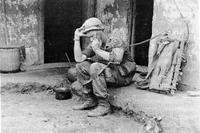Most questions asked in a job interview aren't exactly about the one being posed. It's more about how well you answer the question and what your answer means below the surface.
When an employer asks a interviewee to "tell me about yourself," it's not just a chance for the potential new hire to talk about their hobbies, dreams and life goals; it's an opportunity to show the employer you have aspirations in line with the company's goals and that you can clearly and concisely communicate an idea.
This is where having a thoroughly researched and well-rehearsed personal statement is vital. Think of it less like a personal statement of facts and more like an elevator pitch for yourself.
But like any other elevator pitch, you have only the length of the elevator ride to get to your point, grab their attention and -- most importantly -- get lodged into their memory, whomever they might be.
This means you have about 30 seconds to become instantly memorable and appear capable in the eyes of a total stranger. But that's OK because the interviewer is looking for someone to impress them with just such a statement.
Like any sales pitch, you want to be able to describe what you're selling (in this case, it's yourself). You want to describe your background and education, what jobs you've held and what you're interested in doing now.
Start with writing it down, listing all the things you think are the most important in those three areas. Don't worry about writing too much at first. The next step is cutting things out, getting to the most important aspects of your pitch and trimming the whole thing down to a tight 30 seconds.
The first area involves your education and training. For veterans in a skilled trade, this is an important area because many skilled labor jobs require licenses and certificates. For unskilled labor or other career fields, this is where you'd list degrees and other training.
If you've been out of the military for a few years, have a lot of work history and aren't trying to get a job that requires a master's-level education, you might just briefly mention that you have a degree and where it's from, then go right into detailing your work history. Anyone with less than five years of work experience should definitely take the time to detail their education.
The second area will take up the bulk of the time in the pitch. Choose work history that has the most relevance to the job you want and list it here. Be advised: This is the area where everyone is most likely to stumble, fumble and ramble on. Think sharp as you navigate your work history.
Finally, write out your future goals and what you're interested in now. This is also not the time to fumble around, unsure of what you want. Choose an aspiration that is in line with the company's goals, one the employer will see as mutually beneficial. Employers know that an employee whose personal and professional goals are aligned will work harder and be more loyal than someone taking a job just for the money.
When you have all these ideas down, get rid of most of them by considering whether they're relevant to the job or employer you're trying to pitch to. Parts 1 and 3 should be about one sentence long; Part 2 should be three sentences long. When you read them aloud, do so conversationally and time yourself. Practice makes perfect.
It should take about 30 seconds to read your statement without going too fast or too slow. Memorize it and practice reading it calmly and conversationally to a loved one. Carefully consider their feedback if they offer some; it may mean the difference between success or failure.
And don't be too proud to cut things out. You may have time to detail them later.
Want to Know More About Veteran Jobs?
Be sure to get the latest news about post-military careers, as well as critical info about veteran jobs and all the benefits of service. Subscribe to Military.com and receive customized updates delivered straight to your inbox.












